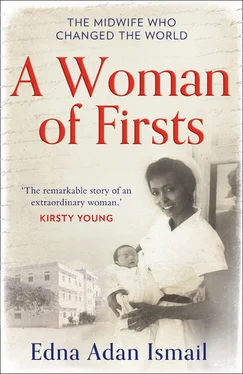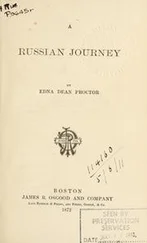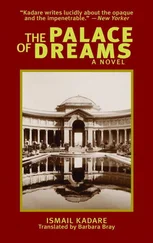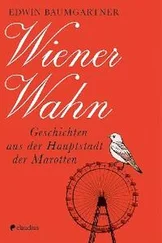I was working with Dr Ashe one day when a woman was brought in who’d got into difficulties giving birth at home, which was the first we knew of her – as is often the case. She’d delivered her baby but was haemorrhaging badly and left a sticky trail of blood right into the waiting room. Dr Ashe stayed calm but announced that we had to get her to the operating theatre in Hargeisa Hospital urgently. In spite of transfusions and other measures, this young mother died. Dr Ashe was very upset but still respectful and thanked me for helping her try to save the mother’s life. She made me feel important in the equation and she whetted my appetite for even more health work.
When the first boarding school for girls opened almost two hundred kilometres away in the town of Burao in February 1953, Dr Ashe surprised me by recommending to my father that I be sent there as a pupil teacher. ‘Edna shouldn’t be wasting her time following me around as an interpreter,’ she told him. ‘She has the making of something better. She can live in the teachers’ accommodation and continue her secondary school education.’ There were two British teachers at the Burao school, neither of whom spoke Somali, and one Somali assistant teacher who spoke only limited English. They needed someone with both languages, so I was selected as one of the two pupil-teachers appointed that year. The arrangement was that the staff would give me tutorials after school hours. It was the only option open to me if I wanted to go any further.
For almost two years I lived and worked in Burao, working as an interpreter in the mornings, sitting in on the classes for the first twenty-seven pupils of the new school. I also earned my first wage, which amounted to thirty East African shillings a month plus food and accommodation. I thought I was rich. Every afternoon I had three or four hours of lessons in higher-grade maths, English and biology – all subjects I’d need to pass if I were to one day become a medical assistant to my father. I had to take these lessons alone as it would have been considered improper for me to sit with the high school boys my teacher also taught.
The British authorities had set up a scholarship scheme in which the best students in the Protectorate could be selected to pursue secondary education and professional training in other countries. Scores of teenage boys had already been sent to Aden, Sudan, Kenya and the UK to study anything from engineering to politics, among them several members of my tribe and one from my neighbourhood, Hassan Kayd, who had gone to the prestigious Sandhurst military academy in Britain. Each year a representative from the British Colonial Office came to Somaliland to examine and interview potential candidates for a scholarship, and in 1953, the teachers in Burao put my name on the list – a first for a girl in Somaliland.
The arrival of the British representative, Miss Udell – I’ll never forget her name – was a big event in our education system. There was even a countdown to when she’d arrive. It was like a royal visit and the teachers prepared us well with mock exams and staged interviews. First she supervised exams at Sheikh Secondary School and interviewed the boys who obtained top grades, and then she came to Burao to examine a small number of the boys for the scholarship exams – and me. At sixteen years old and approximately five feet tall and weighing fifty kilos, I was the only girl. There was one supervisor for the boys and one supervisor just for me, in a separate room. The Colonial Office must have wondered at Miss Udell’s decision to let me sit for the exam and queried whether I would prove a good return to British taxpayers.
To my amazement I passed with flying colours. My father was so proud of me when I told him, but there were problems other than my gender. I was still working towards my secondary school certificate, had a strong French accent, and needed to improve my English. Plus, I was small and skinny for my age, even though I could eat a mountain. Miss Udell considered all these factors and decided that although I’d passed and had good overall grades, I was too young to be sent overseas. ‘See you next year, Edna,’ she told me with an encouraging smile.
By the time she returned to Somaliland the following year, I had filled out a bit and had one more year of learning and teaching under my belt. I passed the exam once more and could hardly believe it when she told me that I’d won a scholarship to study in England. There were multiple forms to fill in, but when it came to the question that asked me to indicate my preferred course of study, I wrote ‘nursing’ without a moment’s hesitation.
There was one additional hurdle to be overcome before I could be sent to London. The authorities needed to find one other girl to accompany me as a fellow student. The most qualified candidate in the region was Jessica Joseph Raymond from a mission boarding school in Aden who also wanted to be a nurse. Her father was half Indian and her mother half Welsh. Jessica was a delightful young woman; a truly cosmopolitan Somalilander and an ideal companion for someone like me, who’d never travelled further than Djibouti.
Jessica and I flew to England in October 1954. I was seventeen years old and she was three months younger. Leaving all that I knew behind, I set off on my big adventure. I’d never been on a plane before so I was agog at our multiple flights in a DC-3 via Aden, Khartoum, Cairo and Athens with eight young Somali men who’d also been selected for a scholarship.
From the moment we arrived at Heathrow airport and were met by representatives from the British Council and the Colonial Office we were treated extremely well. The Somali boys were especially protective of us and anxious that Jessica and I wouldn’t be living with them but placed elsewhere. Traditionally, the scholarship boys were put up in a boarding house with older pupils already in the UK who could help them adjust. Jessica and I were such novelties as girls that they didn’t know quite what to do with us, so we were put in ‘digs’. Our new home was in Balham, south London with a family called the Rodgers. The father worked as a postman and the couple rented out their upper rooms to lodgers. Jessica and I shared one room and there was a tenant in the other. The Rodgers were very welcoming and they introduced us to their children, Gillian, Jacqueline and Roger, who were close to our age and kind to the two strange girls in their midst.
The first thing that struck me about Britain was how cold and wet it was. I’d read Dickens and the Bronte sisters, so I’d expected rain and autumn mists but not the damp chill. My English vocabulary immediately grew with words like fog and frost, slush and sleet. It also got noticeably darker so much sooner than in Somaliland, where the sun sets and rises roughly the same time all year. We didn’t have televisions in Somaliland but we did go to the movies, so we had a general idea of what London looked like. The big city was far larger than I’d imagined, though, with so many cars. What shocked me most were escalators and lifts, neither of which I’d ever seen before and was afraid to use at first.
Perhaps the most memorable initial experience in London was having so much of my own money. The Colonial Office paid us an allowance of £33 a month to cover our rent, breakfast and evening meal, provided by Mrs Rodgers. We could buy lunch at our college and keep the rest of the money back for bus and train fares, and other expenses. They also gave us £50 each with which to buy some clothes suitable for a British winter. Fifty ‘quid’ was a small fortune and we couldn’t believe our luck. A family friend of Jessica’s offered to take us shopping, which excited us until he took us to Woolworths and the Army & Navy stores where he insisted that we buy identical shoes, raincoats and hats. We reluctantly did as we were told but kept some money back and the next day went out on our own to the West End.
Читать дальше












